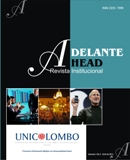Pedagogical models: as the means, not the ends of education
Abstract
ABSTRACT
Education, as a means of forming the coming generations in the rules established by a culture, is of vital importance for every society that seeks to prepare its members to be capable of maintaining and developing it. This would not be possible without the pedagogical models that nourish it. Since the educational process assumes principles and theoreticalmethodological
positions, it also is concerned with the pedagogical-formative task. This essay seeks to provide some reflections regarding cognitive factors, procedures, philosophers, politicians or politics, and historians that have impeded the idealization of pedagogical models.
KEYWORDS:
Education, Formation, Formation Process, Pedagogical models, Ideal, Formation Ideal, Historical subject, teaching-learning process.
References
ABRAHAM, W. (1981). Diccionario de terminología lingüística actual. Madrid: Gredos.
BRUGGER, W. (1995). Diccionario de filosofía. (13ª ed.). Barcelona: Herder.
Enciclopedia de la Educación. La educación en Colombia. (1981). España: Nauta.
FOULQUIÉ, P. (1976). Diccionario de pedagogía. Barcelona: Oikos-tau.
Real Academia Española (2001). Diccionario de la lengua española. 22 ed. Madrid: España.
RICHARDS, J.; Platt, J. & Platt, H. (1997). Diccionario de Lingüística aplicada y enseñanza de lenguas. Barcelona: Ariel.
ROJAS, J. (1989). La psicolingüística.Medellín: El Propio Bolsillo.
ZULUAGA, O. (1999). Pedagogía e historia: la historicidad de la pedagogía, la enseñanza, un objeto de saber.
Santafé de Bogotá: Siglo del Hombre, Anthropos, Editorial Universidad de Antioquia.




